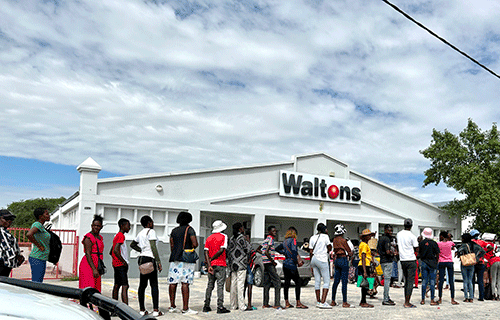The Ministry of Education, Arts and Culture has cautioned school principals to refrain from pressurising parents to buy “unnecessary” goods for their children.
Executive director Sanet Steenkamp said some schools’ stationery lists are unrealistic and put a burden on parents, especially when they add cleaning materials.
They are thus not truly contributing to a conducive environment, she said.
“Schools should first explore all available options before approaching parents to assist with what they can. Many of the guardians are grandmothers, and some parents have many children,” she stated.
Steenkamp indicated that funds have been made available for stationery for schools. They initially budgeted N$8 million, but ended up using N$ 111 277 156.
The money was transferred to the regions as follows:
Oshana – N$5 740 605
Omaheke – N$2 709 099
Omusati – N$13 894 665
//Kharas – N$2 498 890
Oshikoto – N$16 105 529
Kavango East – N$7 151 007
Ohangwena – N$12 479 220
Kavango West – N$9 166 603
Otjozondjupa – N$5 776 825
Zambezi – N$6 570 328
Kunene – N$6 608 641
Erongo – N$6 462 320
Khomas – N$10 897 544
Hardap – N$5 215 878
Not satisfied
As usual, stationery stores were packed to the brim throughout the week, with parents and learners patiently marking off lists provided by schools to ensure the necessary items are bought, and that everyone is set for a smooth beginning of the first trimester.
Lessons resume on Monday.
The queues in Pep, Waltons, Jet, Game and Shoprite in the northern towns were long, with some parents visibly frustrated with the slow payment process.
Saima Ndilula from Ohaingu in the Ohangwena region said she had been standing in a shop queue for more than an hour, but did not get help because there are so many people buying school supplies.
“I am not satisfied with what government schools are doing. They are sending long lists of stationery, but we don’t have enough money to buy all of that,” she lamented.
Ndilula further complained about the money she spent on transport to come to town since the nearest shops do not have all the stationery requested by schools.
“There is no difference between government and private schools. It is better to go back to the old system to start paying school fees,” Ndilula said.
School fees were abolished at government primary schools in 2013, and secondary schools in 2016. – vkaapanda@nepc.com.na


